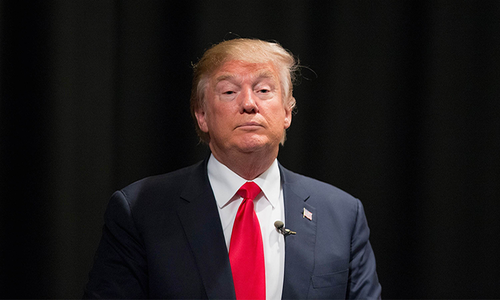One in three US election officials feels unsafe on the job and one in six reported being threatened because of their work, according to a survey published on Wednesday by New York University’s nonpartisan Brennan Centre for Justice.
The results reflect a reckoning in the wake of the 2020 election in which the loser, former Republican President Donald Trump, spent months falsely alleging the contest was "rigged" against him. Those claims sparked threats and actual violence, such as the deadly US Capitol riots on January 6.
A Reuters investigation published on Friday found that election workers and their families continue to face threats and intimidation months after Trump's loss in November to Democrat Joe Biden. The intimidation has been particularly severe in Georgia, where Secretary of State Brad Raffensperger and other Republican election officials refuted Trump's stolen-election claims.
Election officials' fears for their safety portend major staffing problems in future votes, the Brennan Centre said.
“Large numbers of election officials have resigned in the past year, raising alarm bells. But the wave of departures could soon turn into a tsunami,” said a report produced jointly by the Brennan Centre and the Bipartisan Policy Centre, a centrist Washington think tank.
The Brennan Centre surveyed 233 local election officials across the country between April 1 and 7. The survey had a 6.4 per cent margin of error, the centre said.
Many election workers who were surveyed blamed social media for spreading falsehoods. About 54pc of election officials said social media made their work more dangerous and 78pc said it made it more difficult. Those findings reflect a dangerous rise in disinformation, the report from the two research organisations said.
Trump's false claims that voter fraud cost him the election spread quickly among supporters over social media platforms such as Facebook and Twitter and other online forums.
"This disinformation has indelibly changed the lives and careers of election officials," the report said, calling on technology and media companies to help slow the spread of disinformation.
The two research centres urged the Department of Justice to create "an election threats taskforce" to work with federal, state, and local law enforcement to investigate threats against officials and poll workers. The report urged states to protect election employees' personal information and pay for security measures such as home intrusion detection systems.
US Attorney General Merrick Garland acknowledged the rising threat to election workers in a speech on Friday. Garland, a Biden appointee, said his Justice Department will aggressively protect voting rights at a time when many Republican-led states are tightening election laws.
"We have not been blind to the dramatic increase in menacing and violent threats against all manner of state and local election workers, ranging from the highest administrators to volunteer poll workers," he said. "Such threats undermine our electoral process and violate a myriad of federal laws."
US elections are run by two kinds of workers — permanent staffers employed by officials such as secretaries of state, and large numbers of temporary workers brought in to manage polling places on election days. Those temporary workers are vital to the process — guiding voters, answering questions, verifying IDs — and they work long hours for low pay.
Even before November's contested election, counties and local governments struggled to fill these roles. The federal US Election Assistance Commission found that in the 2016 presidential vote, 65pc of jurisdictions nationwide reported that it was “very difficult” or “somewhat difficult” to recruit enough poll workers.
The Brennan Centre report said that as of last year, almost 35pc of local election officials were eligible to retire by the 2024 presidential election.
“It is not clear who will replace them, nor whether those willing to take the job in the future will share the commitment to free and fair elections that was so critical in 2020,” the report said.














































